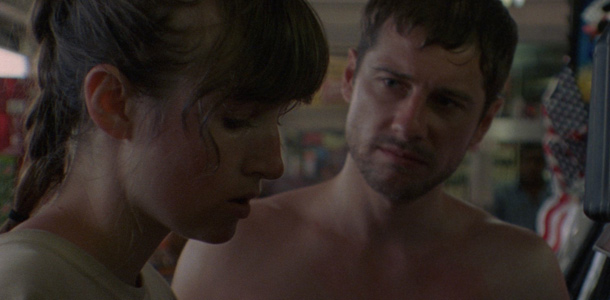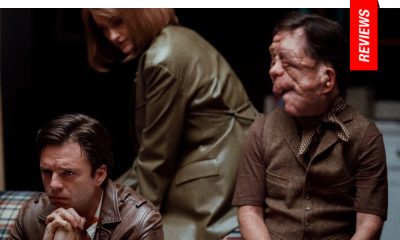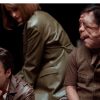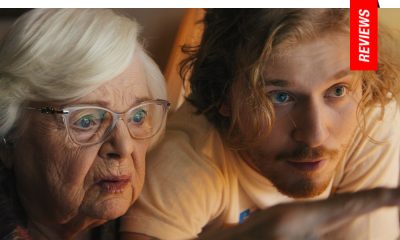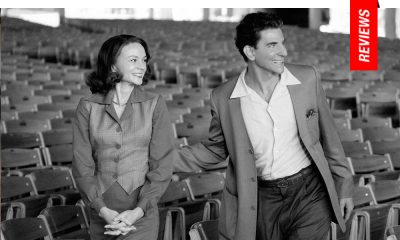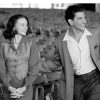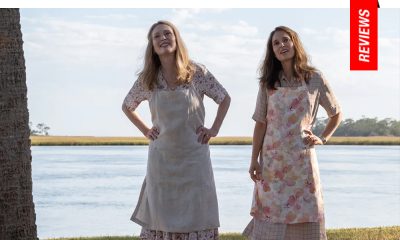Reviews
Sun Don’t Shine | Review (SXSW)
Orange State: Seimetz ninety minutes.
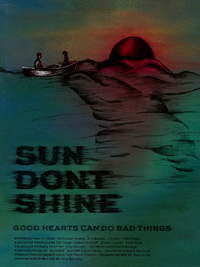 Between them, they barely own one T-shirt. Crystal and Leo, two people with next to nothing, roam the deserted highways and murky backwaters of central Florida, running away from something, something really bad, toward something else, something they hope is good. Written and directed by actress/producer Amy Seimetz, and starring Kentucker Audley and Kate Lyn Sheil, Sun Don’t Shine seethes with an intensity that burns through its character’s eyeballs, through the Florida heat they’re trapped in, through the love they need but can’t fully understand. Crystal and Leo are so desperate, so deprived, so doomed, it’s not clear they even know what they’re trying to do. Seimetz has made a crime film but one after the act and before the punishment, a romance that only hints at the good times, a nightmare from which its characters are trying to awake. From its first frame, the film oozes a blissed out, frenetic energy, starting at a fever pitch that only builds on itself for nearly ninety minutes.
Between them, they barely own one T-shirt. Crystal and Leo, two people with next to nothing, roam the deserted highways and murky backwaters of central Florida, running away from something, something really bad, toward something else, something they hope is good. Written and directed by actress/producer Amy Seimetz, and starring Kentucker Audley and Kate Lyn Sheil, Sun Don’t Shine seethes with an intensity that burns through its character’s eyeballs, through the Florida heat they’re trapped in, through the love they need but can’t fully understand. Crystal and Leo are so desperate, so deprived, so doomed, it’s not clear they even know what they’re trying to do. Seimetz has made a crime film but one after the act and before the punishment, a romance that only hints at the good times, a nightmare from which its characters are trying to awake. From its first frame, the film oozes a blissed out, frenetic energy, starting at a fever pitch that only builds on itself for nearly ninety minutes.
Crystal and Leo are on the brink. Of everything. Of getting caught, of losing each other, of collapse, of self-destructing, of losing themselves. They wrestle in a swamp, Crystal swinging wildly, Leo trying to keep the peace, to bring Crystal down from her manic high. Slowly, she does come down, exhaling, lying on the ground, letting the anger float off. Only a little later, Leo catches Crystal on a payphone (he apologized earlier for breaking her cell phone) and the anguish and torment begin anew. Even the assistance offered from a fellow traveler when their car overheats is met with apprehension, with dread: menace is everywhere, is everything. Leo brings Crystal on this road trip to cement their alibi (for what we’re not told); they have to drive four hours to find a person they know.
And all this time, they sweat. The frame sweats. The air hangs about them, keeping them in motion but without moving, running in place. Seimetz’s decision to shoot on Super 16mm greatly augments the drama and wonderfully complements the film’s point of view and shooting style. The film’s grain dances, around their heads, in their faces, contributing to the feeling of unrest, of being crowded. Cinematographer Jay Keitel and Seimetz never give Leo or Crystal any space, they’re constantly overwhelmed and the camera’s proximity accentuates the dread and frenzy in Shiel’s eyes, or the confused drive that is behind Audley’s. Leo and Crystal are most often seen in the frame in a two-shot, together and alone. Editor David Lowery lets these moments play out only to disrupt them by jumping in time and space, mimicking their state of mind, at times one step ahead, at times one behind, just as they are with each other. All the while they talk in voiceover, at times tenderly, at times distantly, always doomed.
For Leo and Crystal need each other, more than anything, and that is precisely the reason for their undoing. Audley and Shiel both deliver fearless, career-making performances. Audley has the challenge of putting out the semblance of confidence, of having a plan, while being totally lost; he’s trying his best but knows, deep down, that it isn’t really good enough. As the film wears on, Audley ever so slightly unravels, scene by scene, with each effort, each failed scheme taking that much more out of him. By the end, there is just nothing left. All he can do is put up his hands.
Shiel’s Crystal breaks your heart while you watch her break her own. Leo by himself is a simple man, one who did not have the sense to not get involved with a woman like Crystal. Crystal cannot stand in place, stay seated, or keep her hands off Leo when she knows she should: she’s unable to do anything in the right place at the right time. She’s driven by fear and desire, and the two battle for control, for every decision, at every moment. Shiel wears a perpetual frown, and often a look of dull horror—almost as if she’s in a Modigliani—but, in a heartbeat, she breaks away and becomes someone, something different. Her performance is so intuitive, instinctual; it’s a wonder just to watch her work, to morph from one moment to the next, to get an idea and then take off.
Crystal is constantly telling Leo stories he doesn’t want to hear. She talks a lot about mermaids and fondly remembers a trip to the zoo where she saw a show with them. Late in the film, she steals away and sneaks into this show. She sits in the front row in a too tight pink dress and white sneakers, among kids sitting with their parents, staring on in amazement. The camera stays on Crystal’s face, the lights changing from pink to yellow to blue to green, her expression evolving, all the hate and terror from just moments before fading away, basking in the freedom this imaginary life offers. In this moment Crystal hopes that she will one day feel this freedom, but knows she never will.
Reviewed at the 2012 SXSW Film Festival.



